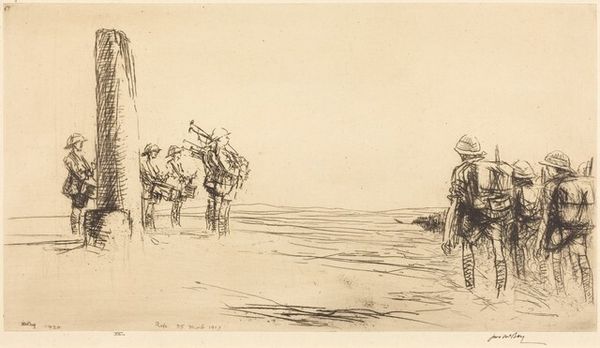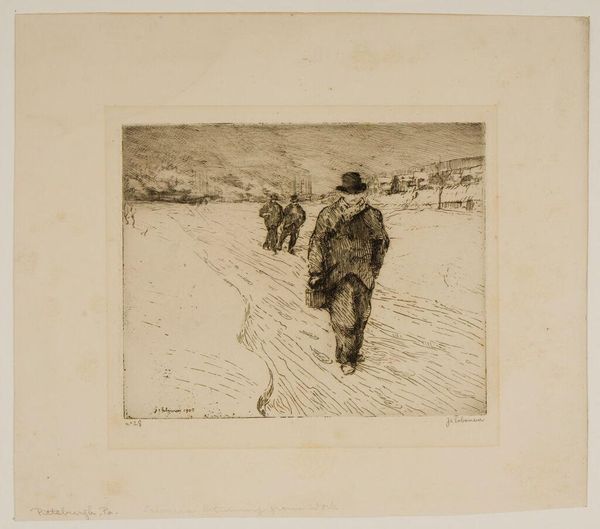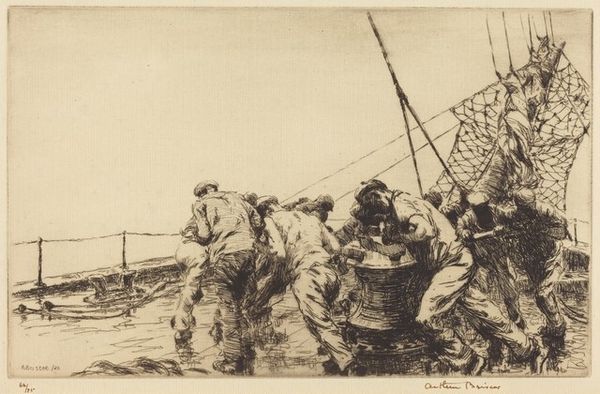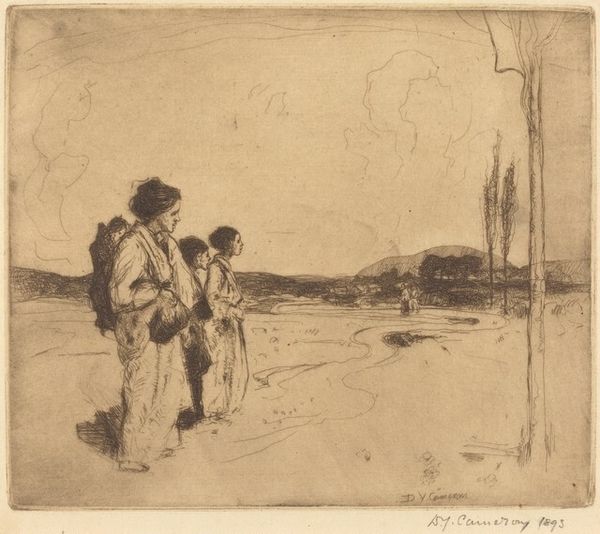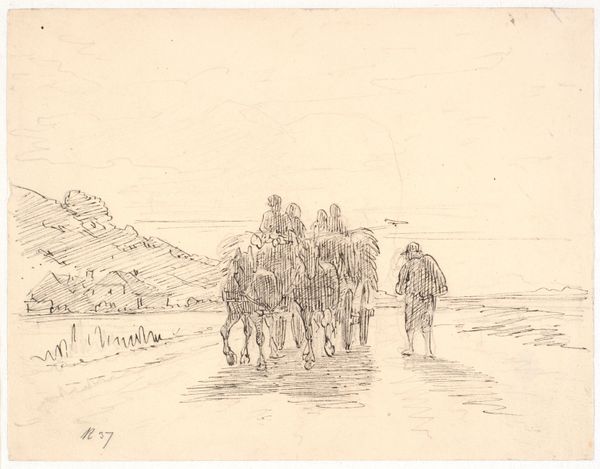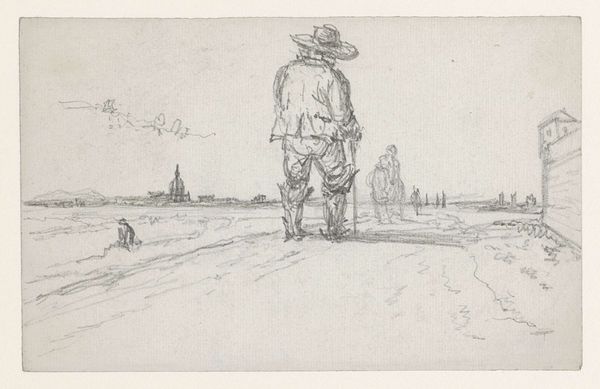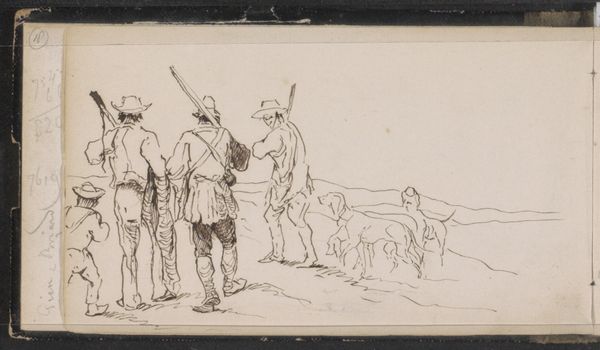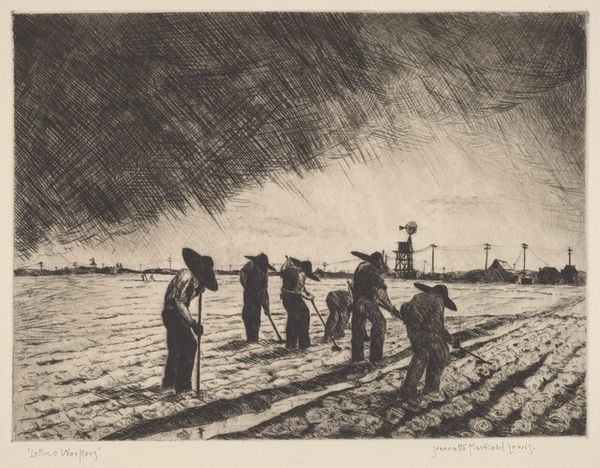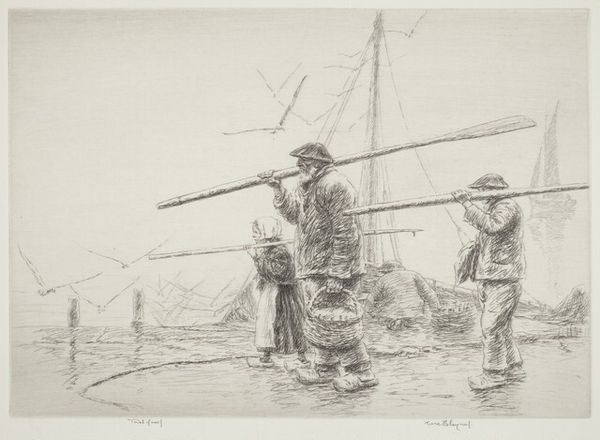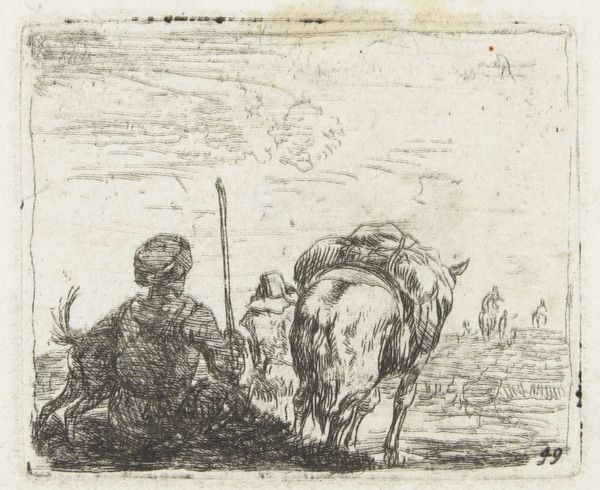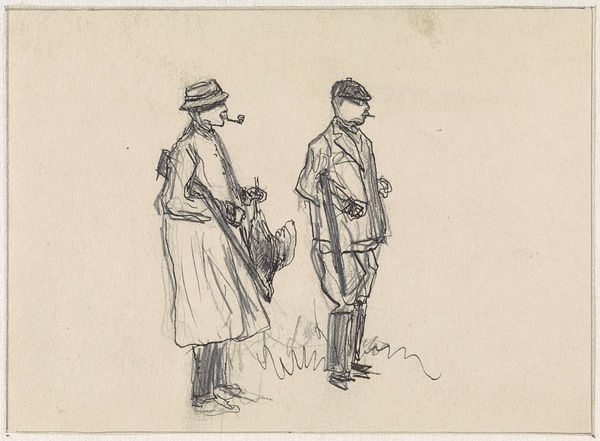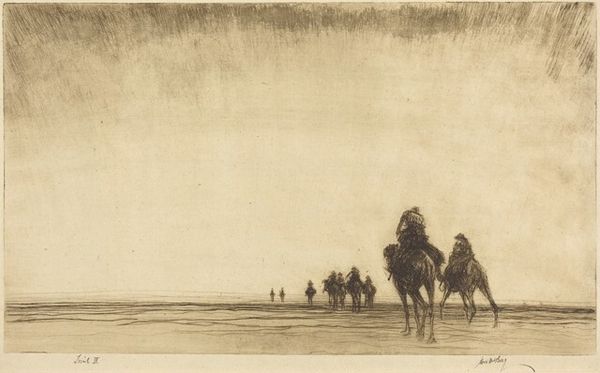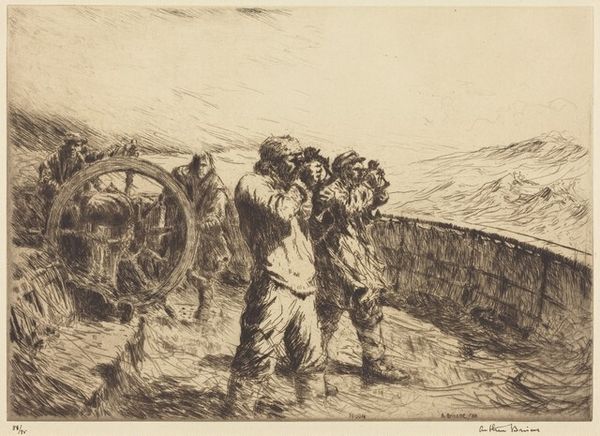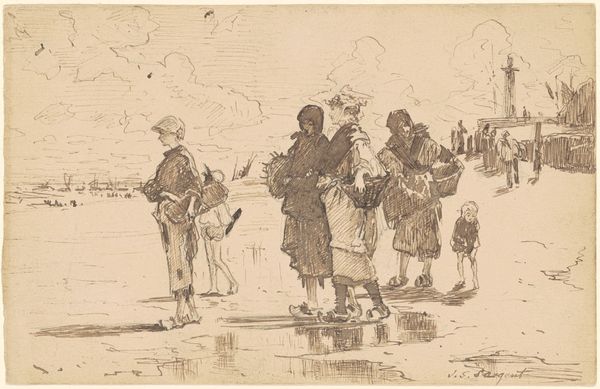
print, etching
# print
#
etching
#
landscape
#
history-painting
#
realism
Copyright: National Gallery of Art: CC0 1.0
Editor: This is James McBey's 1920 etching, "The Surrender of Jerusalem." The sepia tones give it a rather somber, contemplative mood. Two soldiers stand in the foreground, gazing towards the city in the distance, with what looks like another group approaching to surrender. What strikes you about it? Curator: What interests me is how McBey depicts a key historical moment - the British entry into Jerusalem during World War I - not as a triumphant conquest, but through the eyes of the ordinary soldier. It raises questions about how such events are portrayed and remembered. Consider the social context: Britain's imperial ambitions, the war's impact, the changing perceptions of heroism. Editor: So you're saying it’s less about glorifying the event itself and more about… Curator: …more about understanding the cultural impact, yes. Notice how the scale of the city diminishes in comparison to the soldiers; its a very specific composition. And its style, "Realism", lends a sense of authenticity, prompting the viewer to reflect on the complexities of war and its portrayal. Who tells the story matters, right? Editor: Definitely. It makes me think about the political undertones that might be subtle here, but prevalent elsewhere. Curator: Exactly. Art often plays a vital role in shaping collective memory and national identity. This piece, by focusing on individual experience amidst a historic event, engages us to consider our relationship with history. Where are these images today? Who curates them? And to what purpose? Editor: I hadn't considered it in quite that light before. I see now how historical events get packaged for public consumption and the effect that curation and image selection have on our cultural memory. Curator: It's all part of a continuous dialogue shaping and being shaped by society itself. Always interrogate the narratives.
Comments
No comments
Be the first to comment and join the conversation on the ultimate creative platform.
